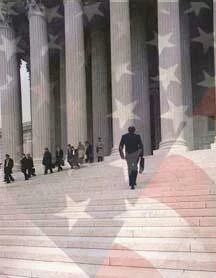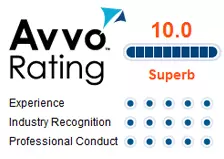In our prior article we discussed those things over which the Michigan DUI client has total control. In this article we discuss those issues over which the DUI lawyer has control, or at least partial control.
The DUI lawyer generally has control over those decisions relating to matters of “strategy” or “tactics”.[i] More specifically, the Supreme Court has found the following decisions to be within the control of the DUI lawyer :[ii]
- To bar the prosecution from using unconstitutionally obtained evidence supporting their contention that you were drunk driving.[iii] In the context of a Michigan DUI this might include evidence that you breath or blood was over the legal limit. It might also include evidence of drugs found in the car.
- To dismiss the indictment because the grand jury was unconstitutionally selected.[iv] This would rarely if ever apply to a Michigan DUI charge.
- To have the defendant wear civilian clothing during the trial.[v] If you are charged with felony drunk driving, or DUI causing death, then you may be in jail waiting for trial. In this case the Michigan DUI lawyer has the ability to be sure you wear civilian clothing during the trial rather than jail garb.
- To forego an objection to a jury instruction.[vi] Your Michigan DUI lawyer will want to be sure that the jury instructions are proper, but in some instances, it makes the most sense to not object to certain instructions.
- To decline to press a particular issue on appeal.[vii] If you are convicted, your Michigan DUI lawyer will have to decide what issues to raise on appeal, and what issues not to raise.
- To forego cross-examination, to decide not to put certain witnesses on the stand, and to decide not to disclose the identity of certain witnesses in advance of trial.[viii] This is a big area of importance for your Michigan DUI lawyer. Rarely is cross-examination not pursued in a DUI trial, but it might be, and of course, it will be important for your Michigan DUI lawyer to decide what witnesses, if any, to put on the stand.
- To provide timely discovery to the prosecution.[ix] Michigan DUI law requires reciprocal discovery, so anything your Michigan DUI lawyer has must be turned over to the prosecutor.
- To allow a federal magistrate judge (instead of a district judge) to conduct voir dire and jury selection.[x] This really only applies at the federal level. Your Michigan DUI lawyer will want to conduct all of the voir dire whenever possible.
- To determine what evidentiary objections to raise, including whether to stipulate to the admission of evidence at trial.[xi] This is another huge and important area of discretion for your Michigan DUI lawyer. Your Michigan DUI case can be won based on proper evidentiary and pretrial obections and motions. This is yet another reason to pick the right Michigan DUI lawyer to represent you.
In addition, lower court decisions (federal and State) have found the following to fall within the lawyer’s purview:[xii]
- The exercise of peremptory challenges.[xiii] These are the challenges your Michigan DUI lawyer can raise during jury selection.
- Bringing juror misconduct to the attention of the trial court.[xiv]
- Requesting and/or consenting to a mistrial[xv]
- Requesting the exclusion of some members of the public from a trial;[xvi]
- Seeking a change of venue, continuance, or other relief because of pretrial publicity;[xvii]
- Moving for a continuance and/or waiving statutory speedy trial rights where doing so is reasonably justified;[xviii]
- Requesting a competency determination;[xix]
- Choosing among different lines of defense that may produce an acquittal;[xx] and
- Deciding what evidence should be introduced, what stipulations should be made, what objections should be raised, and what pretrial motions should be filed,”[xxi]
Although these two lists of DUI lawyer-controlled decisions are short and fairly specific, it is important to bear in mind that the existence of a negative right should imply the existence of a positive one. In other words, the right not to take some step presupposes the right to take that step.
Thus, the DUI lawyer’s prerogative to forego cross-examination or put certain witnesses on the stand naturally implies that the attorney has the power to decide to cross-examine particular witnesses or call particular witnesses to testify.
Moreover, it is also logical to assume that the ability to do the specific implies the ability to do the general. Thus, the right of the DUI lawyer to decide whether to move to dismiss the indictment or bar the introduction of unconstitutionally obtained evidence implies the general right to decided whether and which pretrial motions to file.[xxii]
Likewise, the power to decide whether to forgo putting certain witnesses on the stand must, by implication, include the power to choose how many and which prospective witnesses to interview.[xxiii]
Still, the omission of a particular issue from the above two lists does not necessarily mean the DUI client has the ultimate control over how the issue is to be resolved. Indeed, courts are naturally reluctant to expand the number of matters over which a DUI defendant has control. They are reluctant because, among other reasons, waivers of such matters are usually burdensome on the court system, requiring, as they usually do, a knowing, intelligent, voluntary (and sometimes written) waiver in open court on the record.[xxiv]
Along with the power to control a particular decision comes the responsibility that the decision be well-informed. Strategic decisions that are not the product of a thorough investigation will be subject to post-trial attack regardless of counsel’s power to make the decision.
On the other hand, as the Supreme Court has remarked, strategic decisions made after a thorough factually and legal investigation “are virtually unchallengeable,”[xxv]
Put another way, “counsel has a duty to make reasonable investigations or to make a reasonable decision that makes particular investigations unnecessary.”[xxvi] Tactical decisions will not be justifiable unless defense counsel satisfies this fundamental duty to investigate.[xxvii]
Get a FREE confidential CASE EVALUATION on your Michigan OWI/OWVI/DUI by calling (248) 306-9159 , or filling out this consultation request form. Call now, there’s no obligation!
Note: This article is based on the December 2009 Champion Magazine Article entitled Control Over the Defense: Representing Zacarias Moussaoui by Kenneth P. Troccoli.
[i] 3 LaFave et al., supra note 4 at 770-71 (stating that generally, “matters of ‘strategy’ of ‘tactics’, were said to be within the ‘exclusive province’ of the lawyer”); see also Taylor v. Illinois, 484 U.S. 400, 418 (1988) (observing that “[t]he adversary process could not function effectively if every tactical decision required client approval”).
[ii] See generally 3 LaFave et al., supra note 4 at 779-80 (2007 & Supp.2008-09).
[iii] Wainwright v. Sykes, 433 U.S. 72, 91 n.14 (1977) (motion to suppress based on a Miranda violation); see also id. (noting that Henry v. Mississippi, 379 U.S. 443, 451 (1965) and Estelle v. Williams, 425 U.S. 501 (1976) both hold that the defendant is bound by “decisions of counsel relating to trial strategy”).
[iv] Tollett v. Henderson, 411 U.S. 258, 267-68 (1973); Francis v. Henderson, 425 U.S. 536 (1976).
[v] Estelle v. Williams, 425 U.S. 501, 512-12 (1976).
[vi] Engle v. Isaac, 456 U.S. 107, 128-29, n.34 (1982).
[vii] Jones v. Barnes, 463 U.S. 745, 751 (1983).
[viii] Taylor v. Illinois, 484 U.S. 400, 418 (1988).
[ix] Id.
[x] Gonzalez v. United States, __ U.S. __, 128 S.Ct. 1765, 1770-71 (2008).
[xi] New York v. Hill, 528 U.S. 110, 115 (2000); accord Sexton v. French, 163 F.3d 874, 885 (4th Cir. 1998). In the Moussaoui trial, the district court judge approved the entry of numerous evidentiary stipulations, none of which were approved by Moussaoui.
[xii] See generally 3 LaFave et al., supra note 4 at 780-81 (citing and digesting relevant federal and state cases), LaFave also notes that there are a number of other areas in which the courts have expressed uncertainty regarding whether the defendant or counsel has the ultimate say. These areas are: “whether to accept a jury of less than 12, whether to rely upon a partial defense (i.e., a defense that challenges only the higher level of multiple charges), whether to stipulate to the introduction of prior recorded testimony on a critical issues (or all issues), and whether to pursue an ‘all or nothing’ defense by waiving the right to a jury instruction on lesser included offenses.” Id. at 782-83 (citing and digesting cases).
[xiii] Government of the Virgin Islands v. Weatherwax, 77 F.3d 1425, 1434 (3rd Cir. 1996) (quoting ABA Standard § 4-5.2(b) which recognizes within counsel’s purview the decision to accept or strike jurors); Gardner v. Ozmint, 511 F.3d 420, 426 (4th Cir. 2007) (defense counsel’s decision not to exercise peremptory challenge was a tactical decision).
[xiv] Government of the Virgin Islands v. Weatherwax, 77 F.3d 1425, 1435-36 (3rd Cir. 1996).
[xv] Id. at 1435; United States v. Washington, 198 F.3d 721, 724 (8th Cir. 1999) (“Common sense… dictates that counsel make the ultimate decision to request a mistrial.”) Watkins v. Kassulke, 90 F.3d 138, 143 (6th Cir. 1996) (finding that where “defense counsel consents as a matter of trial strategy to a mistrial, that consent binds the defendant and removes any bar to reprosecution, regardless of whether the defendant participates in the decision”).
[xvi] United States ex rel. Bruno v. Herold, 408 F.2d 125, 129 (2d Cir. 1969).
[xvii] United States ex rel. Agron v. Herold, 426 F.2d 125, 127 (2d Cir. 1970) (holding the decision to waive a pretrial publicity claim is a matter of trial strategy); State v. Hereford, 592 N.W.2d 247, 252 (Wis. App. 1999) (“[D]ecisions impacting venue are tactical decisions which are delegated to counsel when a defendant in a criminal trial appears by counsel.”)
[xviii] Townsend v. Superior Court of Los Angeles County, 543 P.2d 619, 624, 626 (Cal. 1975) (en banc) (recognizing that “the power to control judicial proceedings is vested exclusively in counsel” but also acknowledging that counsel does not possess “carte blanche … to postpone his client’s trial indefinitely”); see also New York v. Hill, 528 U.S. 110, 115 (2000) (counsel has authority to waiver Interstate Agreement on Detainers deadline).
[xix] People v. Bolden, 99 Cal. App. 3d 375, 379-80 (1979) (“[W]hen the attorney doubts the present sanity of his client, he may assume his client cannot act in his own best interests and may act even contrary to the express desires of his client.”); see also Shephard v. Superior Court, 180 Cal. App. 3d 23, 225 Cal, Rptr. 328 (1986).
[xx] Lewis v. Alexander, 11 F.3d 1349, 1352-53 (6th Cir. 1993) (counsel’s strategic decision not to raise a medical maltreatment defense did not amount to ineffective assistance of counsel); Meeks v. Bergen, 749 F.2d 322, 327-29 (6th Cir. 1984) (counsel’s choice of traditional self-defense over battered spouse syndrome); Hyde v. Branker, 286 Fed. Appx. 822, 832-33, 2008 WL 2611363 (4th Cir. 2008) (counsel chose not to present a voluntary intoxication defense); see also Knowles v. Mirzayance, __ U.S. __, 129 S. Ct. 1411, 1422 (2009) (“The law does not require counsel to raise every available nonfrivolouse defense.”); cf. United States v. Kaczynski, 239 F.3d 1108, 1118 (2001) (declining to decide whether the defendant controlled the decision to present a mental health defense given that he had agreed that his counsel could control the presentation of the evidence).
[xxi] Sexton v. French, 163 F.3d 874, 885 (4th Cir. 1998) (quoting United States v. Teague, 953 F.2d 1525, 1531 (11th Cir. 1992)); see also United States v. Wingate, 128 F.3d 1157, 1161 (7th Cir. 1997) (in retrial, defendant is bound to stipulation agreed to by different counsel in first trial); United States v. McGill, 11 F.3d 223, 226-27 (1st Cir. 1993) (affirming defense counsel’s decision to stipulate to the admission of evidence over client’s objection); United States v. Kiser, 948 F.2d 418, 425 (8th Cir. 1991) (not ineffective assistance for trial counsel to stipulate to admission of business records over defendant’s objection); Johnson v. Riddle, 281 S.E.2d 843, 846 (Va 1981) (“The decision to call or not to call a witness [is] a tactical decision to be made by counsel….”).
[xxii] See, e.g., Sexton v. French, 163 F.3d 874, 885 (4th Cir. 1998) (holding a capital case that the decision as to what pretrial motions to file rests with defense counsel).
[xxiii] See, e.g., Lewis v. Alexander, 11 F.3d 1349, 1353-54 (6th Cir. 1993) (affirming trial counsel’s strategic decision not to pursue certain lines of investigation); Meeks v. Bergen, 749 F.2d 322, 328 (6th Cir. 1984) (same).
[xxiv] See, e.g. , Faretta v. California, 422 U.S. 806, 835 (1975) (allowing the waiver of the right to counsel so long as it knowing and intelligent and made on the record); Taylor v. Illinois, 484 U.S. 400, 417-18 (1988) (stating that those rights basic to a defendant “cannot [be] waive[d] without the fully informed and publicly acknowledged consent of the client”).
[xxv] Knowles v. Mirzayance, __ U.S. __, 129 S. Ct. 1411, 1420 (2009) (quoting Strickland v. Washington, 466 U.S. 668, 690 (1984)).
[xxvi] Strickland v. Washington, 466 U.S. 668, 690 (1984); see also Walker v. True, 401 F.3d 574, 579-80 (4th Cir. 2005) (same), vacated on other grounds, 546 U.S. 1086 (2006); Bell v. True, 413 F. Supp. 2d 657, 696 (W.D. Va. 2006) (same).
[xxvii] See Wiggins v. Smith, 539 U.S. 510, 522-23 (2003) (strategic decision not to present mitigation evidence in capital case was not justifiable given defense counsel’s failure to discharge his duty to investigate).











{ 1 trackback }